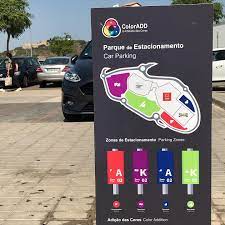The Costa Rican Red Cross in conjunction with the Costa Rican Tourism Institute (ICT) enabled the first seven beaches in the country suitable for color blind people. They are:
Negra in Puerto Viejo
Manzanillo
Cocles Beach
Bahia Ballena Marine Park
Ventanas Beach
Espadilla Beach in Manuel Antonio
Tamarindo Beach
Color blindness is a condition that makes it impossible for people to see colors normally. It is also known as color deficiency and affects about 350 million people in the world, mostly men.
In color blindness, the person generally cannot distinguish between certain colors. They often do not distinguish greens from reds, and sometimes blues.
Prevention strategy

“The Costa Rican Red Cross generates this type of action as part of a prevention strategy that exists on the beaches. This will allow to know which are the safe areas for those who visit them and also which are areas that are not suitable for swimming.
“All this through gestures, signs and flags that facilitate this process, thus putting inclusion into practice,” said Jim Batres, national director of Risk Management and Attention for Emergencies of the Red Cross.
For his part, Alberto López, ICT General Manager, applauded the effort to achieve more accessible and safe beaches for local and international tourists. “Without a doubt, this signposting and these efforts are congruent with our sustainable tourism model, which calls for inclusion and accessibility as increasingly relevant components of Sustainable Tourism.”
Support with ColorADD initiative

This program is launched by the Portuguese initiative ColorADD. It is a system that represents the 3 primary colors by means of graphic symbols. “This association with the Costa Rican Red Cross is an example of good practices that we can replicate for the whole world, so we can have safer and more inclusive beaches,” said Miguel Neiva, creator of the ColorADD code.
The warning signs that will be on these seven beaches are:
Red flags: indicating that there is a sector not suitable for bathers due to the existence of rip currents or that they are of recent formation.
Green flags: determine safe areas for bathers
Yellow flags indicating the presence of lifeguards in the area

